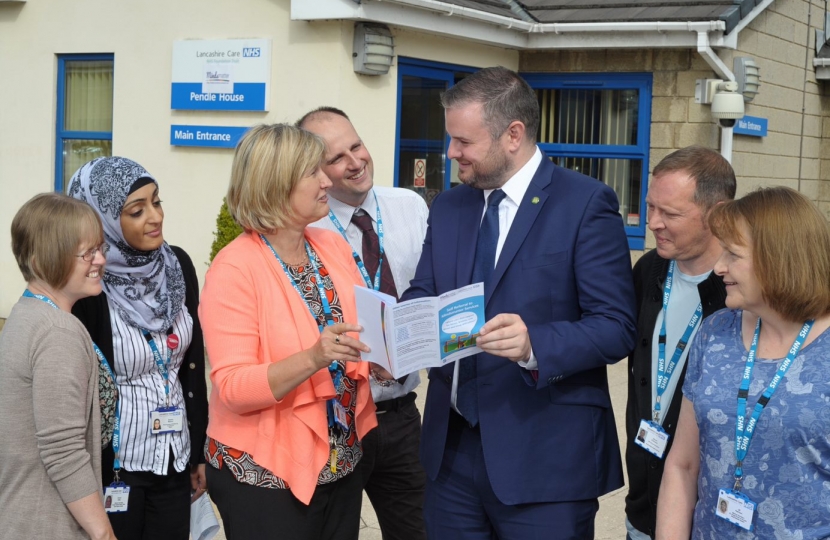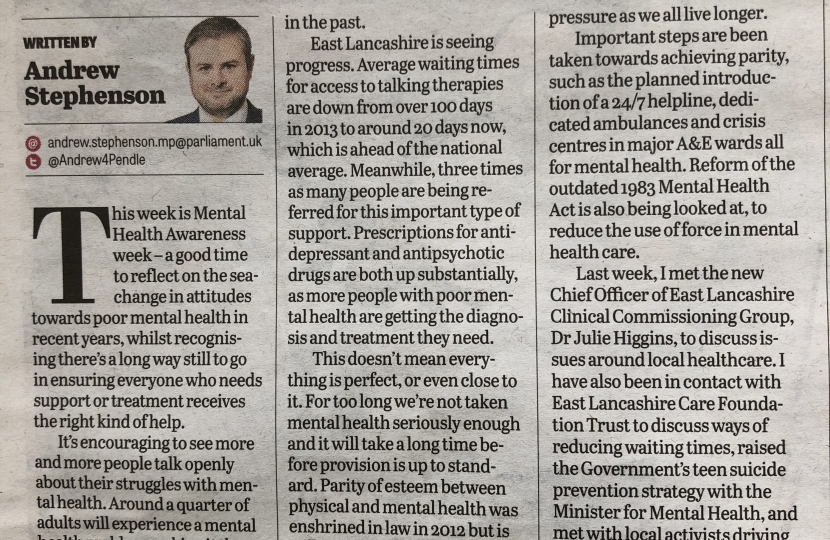This week is Mental Health Awareness week – a good time to reflect on the sea-change in attitudes towards poor mental health in recent years, whilst recognising there’s a long way still to go in ensuring everyone who needs support or treatment receives the right kind of help.
It’s encouraging to see more and more people talk openly about their struggles with mental health. Around a quarter of adults will experience a mental health problem making it the largest single cause of disability in the UK. It is vital the stigma around these conditions is left in the past.
East Lancashire is seeing progress. Average waiting times for access to ‘talking therapies’ are down from over 100 days in 2013 to around 20 days now, which is ahead of the national average. Meanwhile, three times as many people are being referred for this important type of support. Prescriptions for antidepressant and antipsychotic drugs are both up substantially too, as more people with poor mental health are getting the diagnosis and treatment they need.
This doesn’t mean everything is perfect, or even close to it. For too long we’re not taken mental health seriously enough and it will take a long time before provision is up to standard. Parity of esteem between physical and mental health was enshrined in law in 2012 but is still to be delivered in practice. Record increases in funding for mental health is helping but the whole health system remains under pressure as we all live longer.
Important steps are been taken towards achieving parity, such as the planned introduction of a 24/7 helpline, dedicated ambulances and crisis centres in major A&E wards all for mental health. Reform of the outdated 1983 Mental Health Act is also being looked at, to reduce the use of force in mental health care.
Last week, I met with the new Chief Officer of East Lancashire Clinical Commissioning Group, Dr Julie Higgins to discuss issues around local healthcare. I have also been in contact with East Lancashire Care Foundation Trust to discuss ways of reducing waiting times, raised the Government’s teen suicide prevention strategy with the Minister for Mental Health, and met with local activists driving improvements in mental health treatment. I will continue to raise mental health with NHS leaders and Ministers.



